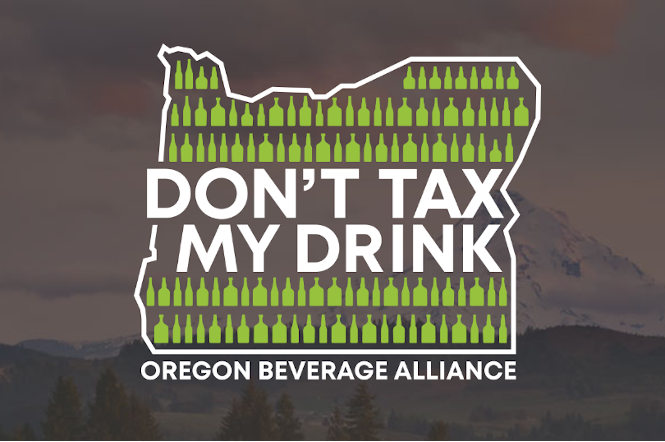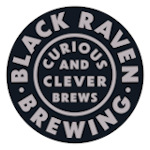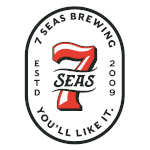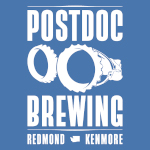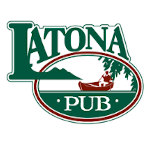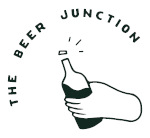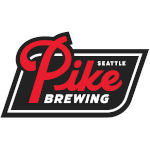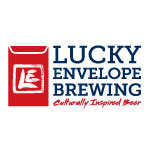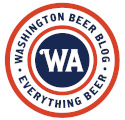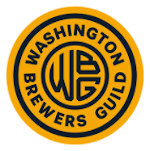Update Feb. 22, 2024, provided by the Oregon Beverage Alliance:
Oregon Health Authority Lied to Public, Legislators and Media on Buried Report, Special Interests’ Involvement in Coverup
Emails find OHA intentionally hid a publicly funded study when it concluded alcohol taxes don’t curb excessive drinking, then lied about outside lobbyist’s involvement
PORTLAND, Ore. — Today, the Oregonian followed up on its investigation into the Oregon Health Authority withholding a publicly funded report that contradicted its position on alcohol tax increases. The Oregonian found OHA lied as recently as Feb. 2, 2024, in a letter to state Sen. Tim Knopp about the entire debacle, saying the report was not shared with “partners or special interests prior to its posting” on Jan. 25, 2024. Yet OHA emails obtained through public records requests show after several OHA officials received the final report in 2021, they asked Oregon Recovers’ Mike Marshall for his input on how to proceed while he and the agency continued lobbying for higher alcohol taxes with the Governor and state legislature.
Emails show an outside lobbyist paid to advocate for higher alcohol taxes, Oregon Recovers’ Mike Marshall, was weighing in on what should have been government agency edits and decisions around the report. OHA also appears to strongarm ECONorthwest, the economic research firm it hired to draft the report, pushing them to never publicly link to the final report as is standard practice, and instead only making public an interim report without the tax policy findings.
“The emails confirm what many suspected – the Oregon Health Authority is using taxpayer dollars to deliberately mislead the legislature and public. The Oregon Health Authority and its employees have been significantly compromised,” said the Oregon Beverage Alliance. “This is outrageous and we demand answers and accountability.”
OHA officials also lied to the media and members of the Legislature’s Task Force on Alcohol Pricing and Addiction Services chaired by Rep. Tawna Sanchez. Edits of OHA’s summary to accompany the report continued for six months after the final report was given to OHA, proving the report wasn’t forgotten about during the chaos of COVID as claimed by OHA officials at the Feb. 1, 2024, Task Force on Alcohol Pricing and Addiction Services meeting. The task force is slated to hear from that same OHA official, as well as an ECONorthwest economist who worked on the report, on Feb. 23, 2024, at 2 p.m.
“Oregonians should be extremely skeptical of information the Oregon Health Authority provides. We expect truth and ethical conduct from the Oregon Health Authority – a public health agency,” said the Oregon Beverage Alliance. “Oregon Health Authority has fallen short of that public expectation.”
Lawmakers are growing increasingly frustrated with OHA as it fails to address a fentanyl drug addiction crisis and roll out Measure 110 funding. Recent reports show massive disfunction at OHA. Despite receiving more than $1 billion more to spend on mental health and drug addiction and recovery services, OHA has spent almost nothing over the past three years despite having dozens of shovel ready project funding requests. Alcohol is the third largest source of revenue for the state, yet only 3% of that revenue goes toward funding mental health and drug addiction recovery and treatment.
About the Oregon Beverage Alliance
The Oregon Beverage Alliance is made up of local brewers, winemakers, cidermakers, distillers and their supply and hospitality partners creating hundreds of thousands of jobs generating $17 billion annually for the state. Learn more: www.DontTaxMyDrink.org
Original Story, as posted on Jan. 30, 2024:
In Oregon, conversations about raising alcohol excise taxes are a matter of course. It hasn’t happened yet, but for the last several years the topic has come up each time the Oregon State Legislature convenes. As it will again next week. Understandably, those who produce alcoholic beverages in the state are not big fans of increasing excise taxes. Those who stand in opposition to the tax hikes are now calling, “Foul!”
Some of the most recent efforts to increase the tax rate pointed to public health as the justification. Public messaging in favor of the increase touted that raising the tax rate would lead to reduced consumption, something that has proven true to varying degrees in other states. Also, the new revenue generated by the increase could create new programs to help with substance abuse and treatment efforts.
Something of a controversy is now brewing in Oregon. It surrounds a just-released report that, in part, contradicts the assertions made by advocates of the beer and wine excise tax increase. Thanks to reporting by The Oregonian, we now know that the Oregon Health Authority (OHA) dragged its feet in releasing the report.
In 2021, the Oregon Health Authority commissioned a study to examine the potential impact of higher tax rates on alcohol consumption in Oregon. The results of that study were just released in the form of a report, raising the question of why it took so long for the OHA to release the report.
The Oregon Beverage Alliance, a group representing the state’s various alcohol producers, suggests that the OHA intentionally withheld the report because it did not provide evidence to support its case. The report sat quietly on a shelf because its findings did not align with the public messaging.
The report shows that increasing Oregon’s excise tax on beer and wine could raise hundreds of millions of dollars for the state. It also found that it would have little impact on consumption by the heaviest drinkers, who largely account for the high societal costs of alcoholism. Using the increased tax revenue to mitigate the societal cost of alcoholism is a key point in the argument.
According to the report, if Oregon increased the excise tax on wine and beer to 20 cents per standard drink, it would reduce overall alcohol consumption by about 5 percent. But consumption by the state’s heaviest drinkers would likely drop by only 2 percent.
The proposed tax increases are no small matter. Recent proposals would shift Oregon from having one of the lowest alcohol excise tax rates in the nation to having one of the highest. Businesses say the increased tax burden would prove crippling.
The Oregon State Legislature starts its 2024 session on Monday, February 5th. The issue is sure to rear its head again this year. When it does, whatever controversy surrounds this report will surely enter the conversation. Stay tuned.

